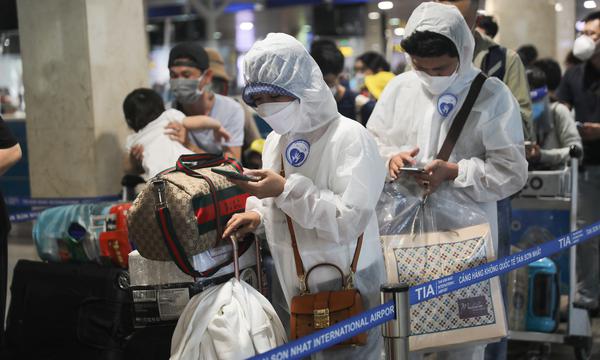Vietnam has launched its first official legal entity, the Vietnam Blockchain Union, which specialises in blockchain technology. The union was established under a decision issued by the Ministry of Home Affairs. It was set up to promote the nation’s digital economy, making Vietnam a top global contender in terms of emerging technologies. Blockchain is a form of data storage and transmission technology using encryption. Its transparency in data sharing is the reason countries and the finance, logistics, and retail industries are investing heavily in its application.
A recent report wrote that the Vietnam Blockchain Union will connect with blockchain organisations and communities around the world. It will enable members to share experiences and resources to research, test, apply, deploy and trade blockchain technology. It will also attract investment for the blockchain industry and train and develop digital human resources. According to an official, the Vietnam Blockchain Union will raise community awareness and guide the development of legal corridors, standards, and regulations in the application and creation of products and services on the blockchain technology platform.

Vietnam has been focusing on researching and applying blockchain. The state has supported the development of blockchain technology applications in socio-economic fields, in which pilot priority is given to businesses deploying feasible blockchain projects, which are expected to aid society at large. Currently, blockchain is mainly applied in the financial sector, especially in digital assets and currencies. Countries around the world are forming policies and laws to regulate this technology.
For example, in March, Taiwan’s Ministry of Economic Affairs (MOEA) formalised the designation of business activities surrounding cryptocurrencies. Cryptocurrency businesses will be listed under the category of “finance, insurance and real estate” as “virtual currency platforms and trading businesses” rather than under the category of “software design services.” Security Token Offerings (STO), a type of public offering for digital tokens using blockchain or distributed ledger technology, will be listed under the subcategory of securities firms. As such, it will be subject to the same supervision as existing businesses in the securities industry. MOEA made the Financial Supervisory Commission (FSC) the main authority responsible to oversee cryptocurrency operations. The commission will work with tax and law departments to set up rules to regulate the evolving but volatile cryptocurrency market.
In Singapore, the Monetary Authority (MAS) has created a two-pronged approach to the crypto ecosystem. Firstly, it will bolster digital asset capabilities. The digital asset ecosystem encompasses an entire range of crypto-related services, and MAS is working to enable a conducive environment for these activities to flourish. For instance, it is clarifying tax treatment, promoting talent development, offering innovation grants, and working with the industry to explore the potential of blockchain through real value experiments.
The second part of the approach is to manage risks, including money laundering and terrorism financing. MAS aims to be adaptive, continually evolving, and consultative as the crypto ecosystem is a fast-moving space. It claimed it will issue guidelines before using legislation. It will continue to provide clarity to the industry on its regulatory thinking and concerns, but at the same time, leave the door open for opportunities to co-create solutions with the industry.




